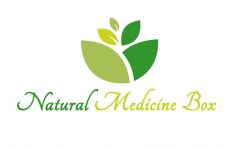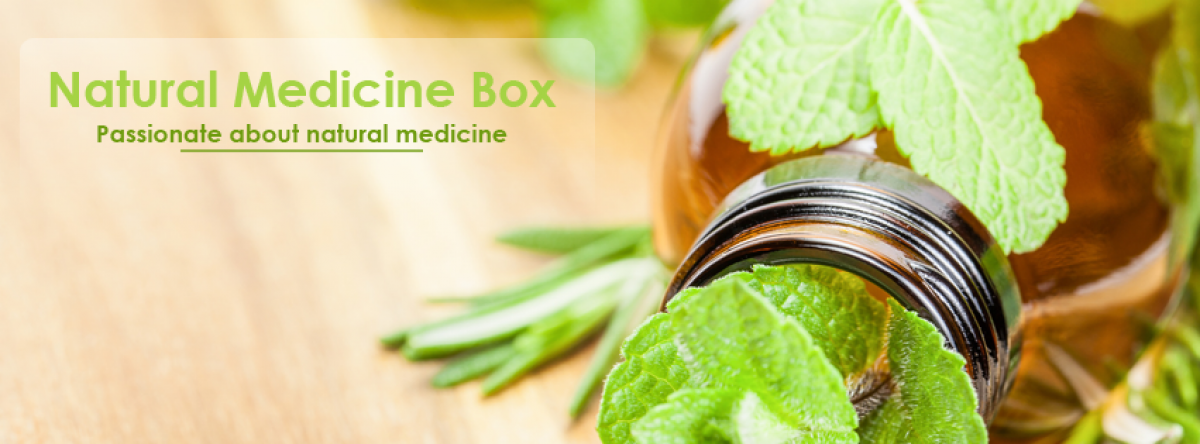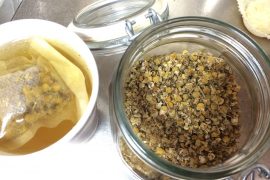Herbal teas can be a rich source of beneficial compounds like polyphenols and flavonoids, which have antioxidant and anti-inflammatory properties.
Simply sipping a cup here and there, without leading an accompanying healthy lifestyle, may not make a major difference in your health, but among people in Greece, many of whom follow a healthy Mediterranean diet, herbal tea turned out to be quite protective against cancer.Drinking Chamomile Tea May Reduce Thyroid Cancer Risk by Up to 80 Percent
Rates of thyroid cancer are significantly lower in Greece than they are in the US and Europe. In Greece, about 1.6 per every 100,000 people are diagnosed with thyroid cancer each year, compared to rates of 13.2 and 5.2 per 100,000 in the US and Europe, respectively.1
In addition to the fresh vegetables and healthy fats upon which the Mediterranean diet is centered, Athens residents often enjoy herbal tea, and the study found that the more chamomile tea consumed, the lower the risk of thyroid cancer became.
Specifically, those who drank chamomile tea two to six times a week had a 70 percent lower risk of developing thyroid abnormalities while those who drank it regularly for 30 years had an 80 percent lower risk.2 According to the study:“Although in the last decade several studies have addressed the protective role of black and green tea on several diseases, including cancer, there are only few and controversial studies on the effect of tea on benign and malignant thyroid diseases.
…Our findings suggest for the first time that drinking herbal teas, especially chamomile, protects from thyroid cancer as well as other benign thyroid diseases.”7 Health Benefits of Chamomile
This soothing herb has a long history of traditional use, including by the father of medicine himself, Hippocrates. Chamomile is typically used in the form of infusions, liquid extracts, or essential oils made from the plant’s fresh or dried flower heads.
1. Wounds and Insect BitesChamomile is one of the most soothing herbs of all, whether used in a tea or applied to your skin. It is rich in the bioflavonoids apigenin, luteolin, and quercetin, and was valued by ancient Greeks, Romans, and Egyptians as a salve for wound treatment.
Research shows rats that drank chamomile water healed faster than those who did not, possibly due to the herb’s anti-inflammatory, antimicrobial, and antioxidant effects.7 Chamomile has even been shown to cause complete wound healing faster than corticosteroids.82. Diabetes
Chamomile tea may be a particularly good choice for diabetics, as one animal study showed it lead to significant decreases in blood glucose levels among diabetic rats, while also lowering the risk of diabetic complications including diabetic neuropathy (nerve damage), cataracts, vision damage, and kidney damage.9
According to Molecular Medicine Reports:10“Studies suggest that chamomile ameliorates hyperglycemia and diabetic complications by suppressing blood sugar levels… [and] increasing liver glycogen storage…”
3. Muscle Spasms, Stress, and Anxiety Relief
Chamomile tea raises your levels of glycine, which helps calm muscle spasms.11 Glycine is also a nerve relaxant, which may explain why chamomile is also effective for stress and anxiety relief.12 Traditionally, chamomile tea is also recommended for soothing menstrual cramps.
4. Sleep
Chamomile has sedative effects that may help with sleep, which is why chamomile tea is often sipped before bed. One study found that people with insomnia who took a chamomile supplement had improvements in daytime functioning and potential benefits on sleep measures as well.13 According to Molecular Medicine Reports:14
“Chamomile is widely regarded as a mild tranquillizer and sleep-inducer. Sedative effects may be due to the flavonoid, apigenin that binds to benzodiazepine receptors in the brain.
Studies in preclinical models have shown anticonvulsant and CNS [central nervous system] depressant effects respectively… 10 cardiac patients are reported to have immediately fallen into a deep sleep lasting for 90 minutes after drinking chamomile tea.”5. Digestive Upset
As a muscle relaxant, chamomile may help to soothe an upset stomach and may even be beneficial for irritable bowel syndrome (IBS).15 Molecular Medicine Reports noted:16
“Chamomile is used traditionally for numerous gastrointestinal conditions, including digestive disorders, ‘spasm’ or colic, upset stomach, flatulence (gas), ulcers, and gastrointestinal irritation. Chamomile is especially helpful in dispelling gas, soothing the stomach, and relaxing the muscles that move food through the intestines.”
6. Hemorrhoids
Chamomile has powerful anti-inflammatory effects, and a chamomile ointment may help improve hemorrhoids. Chamomile can also be used in tincture form as part of a sitz bath for hemorrhoid relief.17
7. Skin Irritation
Chamomile’s soothing effects don’t stop at your mood. Due to its anti-inflammatory effects, chamomile is often used to treat skin irritations such as sunburn and rashes, and it may help with conditions such as eczema as well. In one eczema study, chamomile was found to be about 60 percent as effective as hydrocortisone cream.18
While chamomile has an excellent safety record with very few contraindications, if you are allergic to ragweed pollen, chrysanthemums, asters, yarrow flower, arnica, or marigold flower, you may also be allergic to chamomile. In addition, if you’re taking blood-thinning medication such as warfarin (Coumadin), potential interactions have been reported, although this remains controversial.
Read more about chamomile here
Source: Mercola



Terena Rustman
Rosa Bass